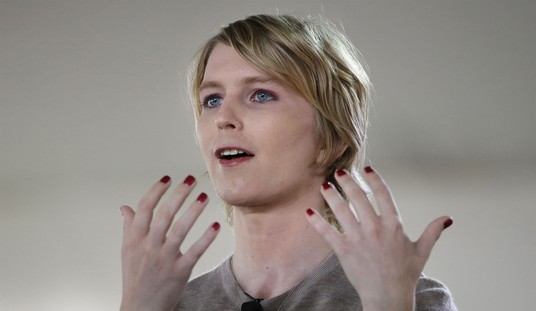Although Paul Krugman is better known these days as an advocate of stimulus spending, he at one point in his career attempted to unravel the mystery of English food. Basically Krugman argued that food in England was bad because people had gotten used to liking bad food. “Maybe the first question is how English cooking got to be so bad in the first place.” The answer, he says, is that it started out bad and created a market for that type of food.
A good guess is that the country’s early industrialization and urbanization was the culprit … the technology of urban food supply was still primitive: Victorian London already had well over a million people, but most of its food came in by horse-drawn barge. And so ordinary people, and even the middle classes, were forced into a cuisine based on canned goods (mushy peas!), preserved meats (hence those pies), and root vegetables that didn’t need refrigeration (e.g. potatoes, which explain the chips) …
by the time it became possible for urban Britons to eat decently, they no longer knew the difference. The appreciation of good food is, quite literally, an acquired taste–but because your typical Englishman, circa, say, 1975, had never had a really good meal, he didn’t demand one. And because consumers didn’t demand good food, they didn’t get it. Even then there were surely some people who would have liked better, just not enough to provide a critical mass.
Which takes us to former DC Mayor Marion Barry. Mike DeBonis, blogging at the Washington Post reports on Barry’s remarks “a party celebrating his landslide victory in the Democratic primary race for the D.C. Council seat he’s held since 2005” which expressed his determination to rid his area of dirty Asian businesses and replace them with quality African American ones.
WRC-TVcameras caught the remarks: “We’ve got to do something about these Asians coming in, opening up businesses, those dirty shops. They ought to go, I’ll just say that right now, you know. But we need African-American businesspeople to be able to take their places, too.”
But the spirit of Krugman was not long absent from the debate. In the comments section, a number of persons have asked: why if the Asian stores and food outlets were so bad, were they still in business? How come they weren’t already driven out by the consumer preference in favor of better stores? The answer of one commenter was almost identical to Krugman’s.
Commenter 1: “Asian restaurants serve essentially African-Americans warmed-over crap-fried rice. The people are unpleasant, their shops are filthy, and the food is unhealthy. Why has not the Gray administration closed down the vermin-infested dens of evil is unbeknownst to me. As usual, Marion Barry is spot on.”
Commenter 2 (in reply to commenter 1): your comment speaks volume about the customers that eat there!
The Economist captures the problem by citing an old Jewish joke. “Such bad food—and such small portions.” For some reason, people were just fine with what they were served up with.
Whether or not Krugman is correct in hypothesizing that people eventually develop a taste for bad stuff, nearly everyone can agree that the products people patronize are limited by income and availability. Perhaps more people in Marion Barry’s ward would dine at Michelin 3 stars — if they could afford the prices — and if there were any Michelin 3 stars that wanted to open in his fine neighborhood.
But there aren’t. So it’s off to get the greasy fried rice.
Krugman says that the only way out of this self-reinforcing circle is to force people to eat good food. If you subsidized the market for arugula — made people eat the right food — then there would come at time when there were “enough people [who] knew what good food tasted like that stores and restaurants began providing it–and that allowed even more people to acquire civilized taste buds.” In this way, Krugman argued, you could arrive at a “good equilibrium”.
But Krugman never explained in his paper why the same process might not produce an increasingly bad equilibrium. Marion Barry claimed that after the removal of those disgusting Asian food stores, he needed “African-American businesspeople to be able to take their places, too.” Well, why aren’t they there yet? If such an entrepreneurial possibility existed, then they would have driven out the filthy Asian greasepits already. The fact that they have not means that in all probability, the current stores, bad as they are, can only be replaced by the artificial mandate of establishments which are even worse.
But if we apply the Krugman hypothesis, over time the inhabitants of Marion Barry’s ward will eventually recalibrate their tastes until they become accustomed to the new lower standard, since there is no reason in principle why a person who can be trained to appreciate pate de fois gras cannot similarly be conditioned to eat dog food.
In fact Marion Barry is himself is a testament to the reverse Krugman principle. Hardly a worse candidate can be imagined. Yet there he is, set for re-election. Yet who can argue with a straight face that Marion Barry or Al Sharpton is the best leadership that the black community can produce? Almost anyone can identify black acquaintances who are immeasurably superior to these two, and yet why are they not in leadership positions? Somehow the market for bad leaders has been established. Why?
The answer may to be found in Krugman’s thesis. People can be accustomed to accepting an inferior standard as their lot in life. If there’s an artificial market for bad food, why not a rigged market for bad politics?
How to Publish on Amazon’s Kindle for $2.99
The Three Conjectures at Amazon Kindle for $1.99
Storming the Castle at Amazon Kindle for $3.99
No Way In at Amazon Kindle $3.99, print $9.99










Join the conversation as a VIP Member